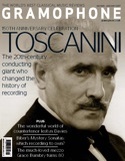Texte paru dans: / Appeared in: |
|
 |
Outil de traduction (Très approximatif) |
|
Reviewer:
David Vickers Audi’s claustrophobic Alcina eschews magic and spectacle entirely, and is low on humanity, wit, variety and sentimental drama – the transformation chorus no longer shows the wondrous liberation of Alcina’s victims but instead is misrepresented as a premature finale that mourns a mature woman who has drunk poison after being forsaken by her younger lover (while Oronte murders Morgana in cold blood); the denouement is subverted entirely and the actual end of Handel’s opera is cut – as are the ballets. Audi not only neglects many of the charms (pun intended) of Alcina but also eviscerates its enlightenment heart and soul. Happily, Christophe Rousset copiously sprinkles magical fairy dust in a fantastic performance of the music. From the first bow-stroke of the Overture, Les Talens Lyriques play with exceptional mastery of textures, moods and styles; the only musical blemish is clanging theorbo filling up the gaps in ‘Ah! mio cor’. Sandrine Piau’s stylish precision, passionate phrasing, sensitivity to text and intelligent embellishments (that amplify the emotional essence of the situation and seldom stray from the harmonic logic of Handel’s writing) constitute the best-sung interpretation of the title-role to have been issued commercially since Arleen Auger’s well-nigh definitive reading for Hickox more than 30 years ago. The rest of the company isn’t too far behind that high standard. Audi is on surer ground with Tamerlano, which comes across like a Shakespearean tragedy. Key dramatic set pieces, including Asteria’s failed attempt to assassinate Tamerlano and Bajazet’s suicide scene, are staged with a directness, simplicity and power that make this like watching a great production of King Lear. There are abridgements – most notably a join between Acts 2 and 3 – but the musicodramatic outcomes are otherwise sensational in every respect. Rousset and Les Talens Lyriques perform with a rare ability to express holistically the score’s depictions of defiance, loneliness, introspection, enragement or melancholy. Sophie Karthäuser aptly conveys Asteria’s paradox of nobility and desperation. Andronico’s impossible predicament, having to choose between political expediency and love, is portrayed sympathetically by Delphine Galou (although I doubt Senesino would have fallen to the floor in anguish quite so often). As Tamerlano’s jilted fiancée Irene, Ann Hallenberg gives a compelling masterclass in how to perform Handel on stage (although the clarinets in ‘Par che mi nasca in seno’ are buried in the mix). Christophe Dumaux’s despotic Tamerlano realises gradually that brutality towards his conquered captives cannot bring him the happiness he craves; this crisis evolves plausibly into horrified appeasement in the wake of Bajazet’s suicide. Jeremy Ovenden’s musicianship and characterisation as Bajazet is by turns disturbing, thrilling and profoundly moving (from raw distress in ‘Empio per farti guerra’ to the tenderness of his dying farewell to his daughter); the masterstroke is that, instead of being carried offstage as he dies, Bajazet painfully climbs on to his lost throne and cannot be prised from it. Instead of its usual interpretation as a grim subversion of the lieto fine, the minor-key final chorus is sung softly as a compassionate elegy. This is essential viewing for those who take Handel as a dramatist seriously. |
|




